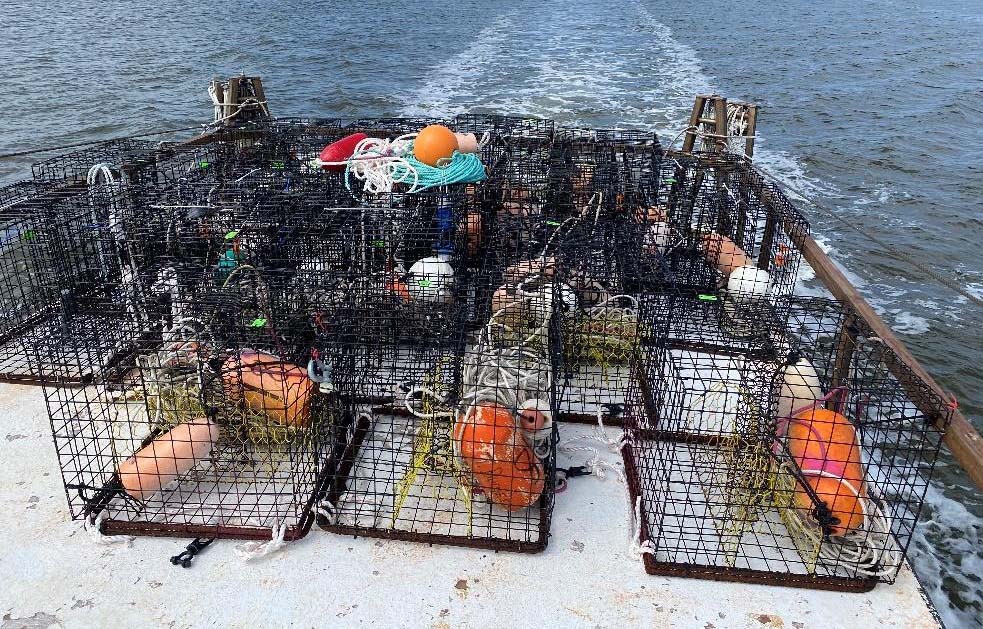The South Atlantic Fishery Management Council (SAFMC) is mulling whether to include new regulations for on-demand or “ropeless” gear on black sea bass pots as a means of preventing adverse impacts on whales.
The black sea bass pot fishery uses pot traps that rest on the bottom and vertical line with a buoy attached for retrieval – similar to other pot fisheries like lobster or crab. The fishery has been experimentally using various types of on-demand gear since 2021, which can include a pot that releases a vertical line only when it gets a signal, or a pot that uses inflatables to rise to the surface for easy retrieval.
On 13 February, the SAFMC held a scoping meeting to work on whether to create an amendment adding on-demand pots as an allowable gear for the commercial harvest of black sea bass, which is currently done under an exempted fishing permit.
On-demand gear is a hot topic in the wider fishing industry as whales – like the critically endangered North Atlantic right whale – are put at risk by vertical lines used in pot- and trap-based fisheries. The recent death of a right whale off the coast of Martha’s Vineyard – an island 7 miles off the coast of the U.S. state of Massachusetts – was caused by an entanglement that NOAA later linked to gear from the lobster-fishing industry.
The SAFMC’s jurisdiction covers waters along the East Coast of the U.S from the northern coast of North Carolina to southern Florida. That region includes the warm coastal waters of South Carolina, Georgia, and Florida’s east coast, where North Atlantic right whales migrate to each winter.
Currently, the black sea bass fishery is closed during the winter months which coincide with whale migrations – but fishermen using on-demand gear can get exemptions to those closures to continue fishing.
Allowing that gear to be used in the commercial fishery at-large will take additional rulemaking, according to the SAFMC. Regulations made through the Atlantic Large Whale Take Reduction Team – which is in part responsible for managing fisheries regulations with respect to the Marine Mammal Protectino Act – as well as rules made by the SAFMC would both need to be amended to allow on-demand gear.
The type of gear to use is also an issue, according to a presentation by SAFMC Fishery Scientist Mike Schmidtke. If the council decides to stick with just on-demand gear that releases a vertical line, there will be less regulatory changes needed – but if the council approves multiple kinds of on-demand gear there may need to be a wider scope of policy changes.
Fishers that have piloted using the gear have so far reported …
Photo courtesy of Bryan Fluech/SAFMC








